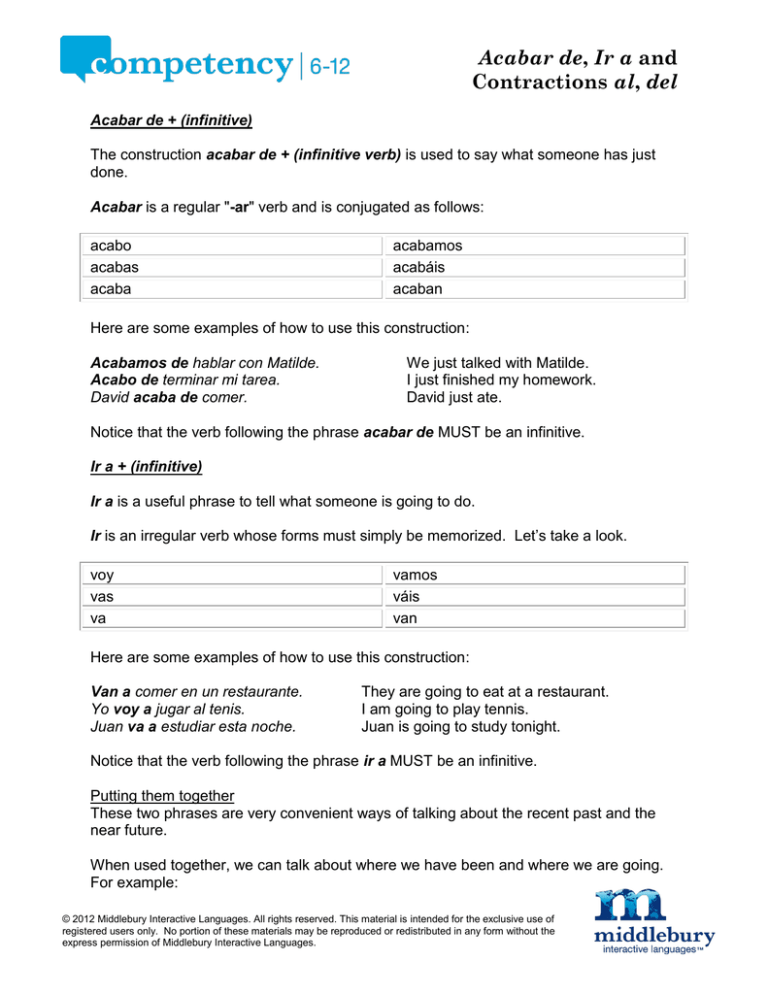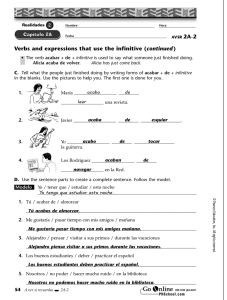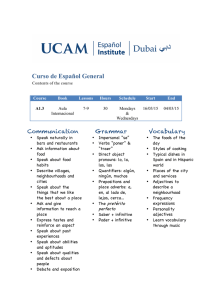Acabar de, Ir a and Contractions al, del
Anuncio

Acabar de, Ir a and Contractions al, del Acabar de + (infinitive) The construction acabar de + (infinitive verb) is used to say what someone has just done. Acabar is a regular "-ar" verb and is conjugated as follows: acabo acabas acaba acabamos acabáis acaban Here are some examples of how to use this construction: Acabamos de hablar con Matilde. Acabo de terminar mi tarea. David acaba de comer. We just talked with Matilde. I just finished my homework. David just ate. Notice that the verb following the phrase acabar de MUST be an infinitive. Ir a + (infinitive) Ir a is a useful phrase to tell what someone is going to do. Ir is an irregular verb whose forms must simply be memorized. Let’s take a look. voy vas va vamos váis van Here are some examples of how to use this construction: Van a comer en un restaurante. Yo voy a jugar al tenis. Juan va a estudiar esta noche. They are going to eat at a restaurant. I am going to play tennis. Juan is going to study tonight. Notice that the verb following the phrase ir a MUST be an infinitive. Putting them together These two phrases are very convenient ways of talking about the recent past and the near future. When used together, we can talk about where we have been and where we are going. For example: © 2012 Middlebury Interactive Languages. All rights reserved. This material is intended for the exclusive use of registered users only. No portion of these materials may be reproduced or redistributed in any form without the express permission of Middlebury Interactive Languages. Acabar de, Ir a and Contractions al, del Acabo de jugar baloncesto. Voy a ducharme. I just played basketball. I am going to take a shower. Contractions: al and del When a or de comes before the definite article el, a contraction is formed. a + el = al de + el = del (to the, or at the) (from the) For example: Voy al supermercado. Esa camisa es del niño. Acabar de, Ir a, and contractions al, del (Not "Voy a el supermercado.") (Not “Esa camisa es de el niño.) © 2012 Middlebury Interactive Languages. Page 2

